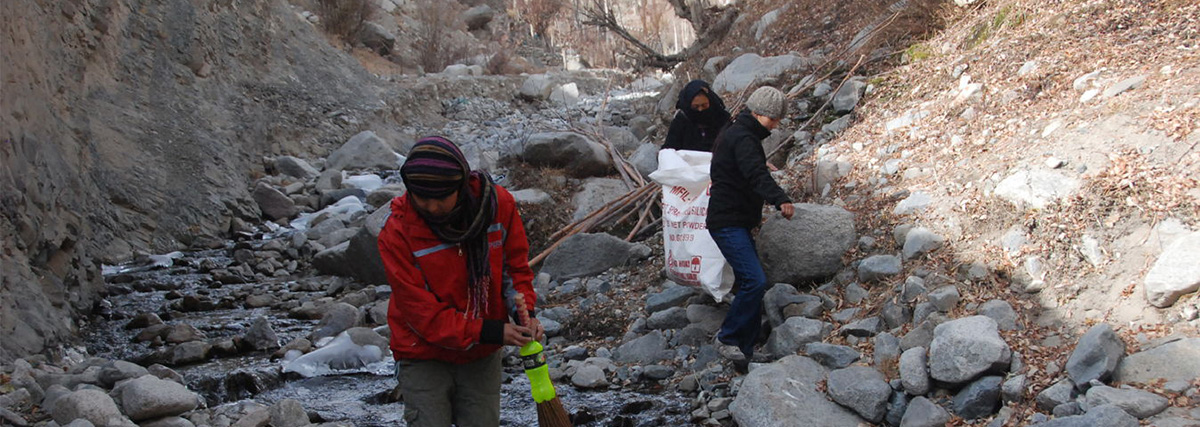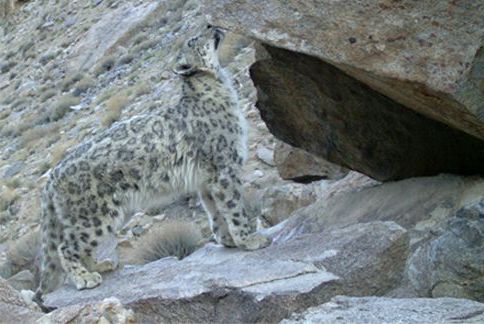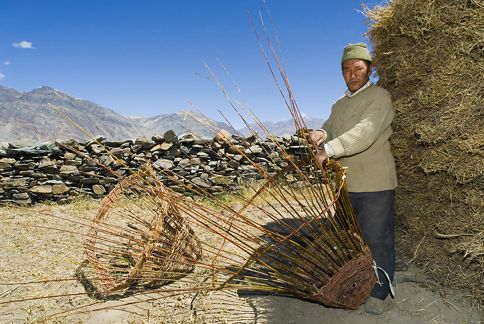
VILLAGE ECO-ACTION PROGRAMME
In the last decade, Ladakh has witnessed a huge surge in tourism, and the rapid growth in visitor numbers has given rise to the problem of uncontrolled and prolific waste generation. Trekking trails and villages are increasingly becoming victims of litter accumulation. SLC-IT and its partners urge tourists and tour operators to carry their trash back with them to places with facilities for recycling and proper disposal. In the meantime, SLC-IT has designed an eco-action program to help villages manage this problem. We have started constructing masonry bins that facilitate ease of proper disposal and recycling by sorting out garbage at source. We also organize trash-cleaning drives, involving villagers, school children and teachers in the clearing of trash from trails and villages.
WASTE-TO-ENERGY BIOGAS DIGESTER
The eastern boundary of Changthang constitutes the boundary with China and, consequently, presents a region with high military and para-military presence. These camps generate large quantities of food waste, and inadequate disposal systems have made them the breeding ground for feral dogs. Considering the ecological sensitivity and significance of Changthang region, this population of feral dogs poses a serious threat to Ladakh’s biodiversity. For instance, their presence is reported to have had an impact on small burrowing mammals and ground nesting birds. In a project funded by UNDP Secure Himalaya, SLC-IT is currently testing a waste-to-energy biodigester prototype in one of these camps. Since it will be subject to some of the world’s most extreme winter temperatures, we have adopted design elements from experiments conducted in similar environments, such as those of Alaska and Scandinavian countries. Once a successful prototype has been designed and tested, we aim to roll these out to all military and para-military camps in the region


